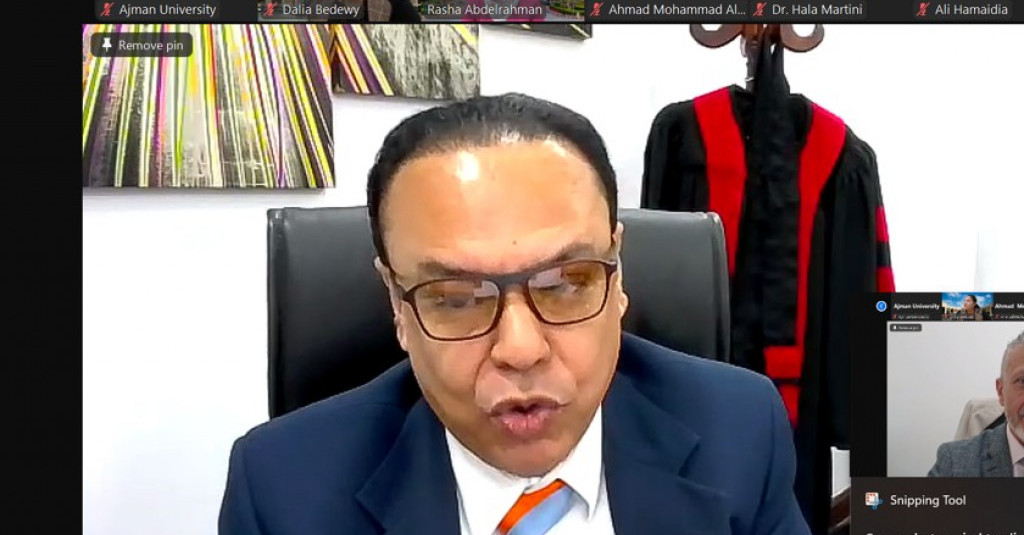Psychology Department Symposium Highlights Innovations in Mental Health and Education

On January 20, 2025, the Psychology Department at Ajman University hosted a captivating symposium online featuring four distinguished speakers, each presenting on cutting-edge topics rooted in their respective areas of expertise. The event brought together students, faculty, and professionals eager to explore advancements in psychology and mental health practices.
- Prof. Ali Hamadiya
Presentation: "Modern Expressive Therapies: Between Multiple Theoretical Approaches and Clinical Requirements"
Prof. Hamadiya introduced the audience to innovative psychological treatment methods focused on expressive therapies. His presentation highlighted the use of art and symbolism as tools for patients struggling with communication, demonstrating how such approaches can foster deeper self-understanding and enhance therapeutic outcomes.
- Prof. Amal Bourouba
Presentation: "Modern Psychotherapies - Relaxation Therapy as a Model"
Prof. Bourouba explored the evolution of relaxation techniques as a vital component of modern psychotherapy. She emphasized the profound connection between mind and body, showcasing how these techniques can restore psychological balance and improve personal skills through structured learning and training.
- Dr. Enas Mohamed
Presentation: "Artificial Intelligence in Educational Psychology: Challenges and Opportunities"
Dr. Mohamed delved into the intersection of artificial intelligence and educational psychology. She discussed the challenges and opportunities AI brings to educators, shedding light on its potential to revolutionize teaching strategies, enhance student engagement, and foster innovative learning environments.
- Dr. Mohamed Roubi
Presentation: "Semiology of Psychological Disorders and Their Areas of Application"
Dr. Roubi presented a detailed exploration of psychological disorder semiology, emphasizing the importance of identifying symptoms for accurate diagnoses and effective treatments. He highlighted the role of community awareness and early detection in improving mental health outcomes.
The symposium provided a platform for meaningful discussions on modern psychological practices, bridging the gap between theory and application. Attendees left with valuable insights and inspiration to further their understanding of psychology in diverse contexts.